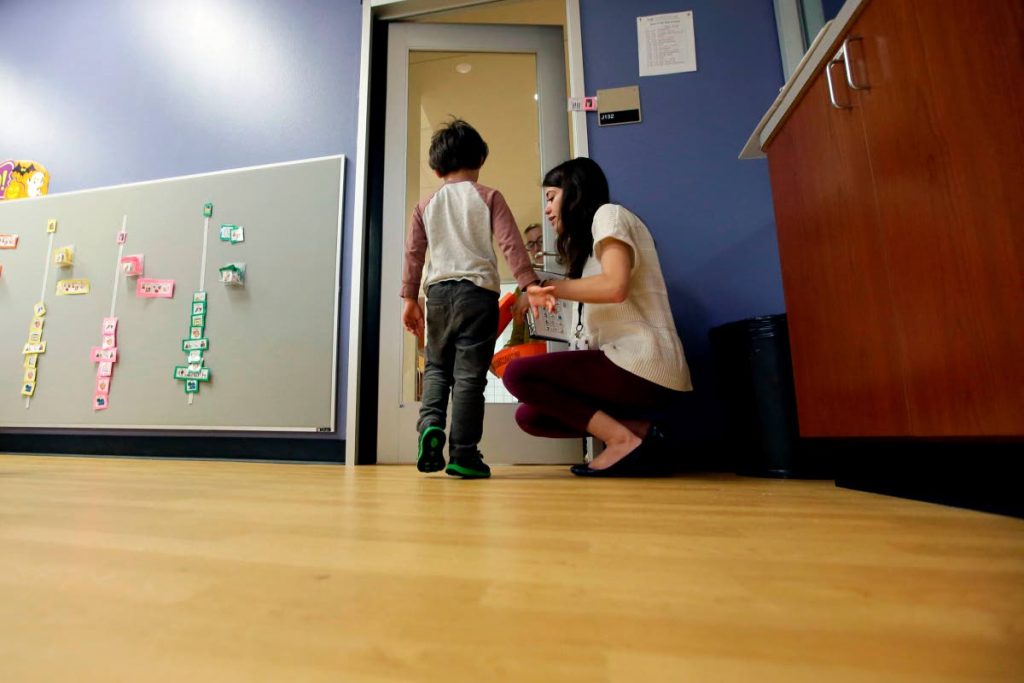World Autism Awareness Day...know the signs, show you care

Today is World Autism Awareness Day and to commemorate this day, the Gender and Child Affairs unit within the Office of the Prime Minister issued a press release to highlight aspects of Autism.
The World Health Organization estimates that 1 in 160 children worldwide has an Autism Spectrum Disorder (ASD). Unlike some other disabilities, Autism has no particular physical characteristics and is known as a faceless disability. Because of this, people living with these types of disabilities may sometimes be disregarded and marginalized.
According to Autism Speaks (international autism research and advocacy organization), ASD refers to a broad range of conditions characterized by challenges with social skills, repetitive behaviours, speech and nonverbal communication. This disorder makes it particularly difficult for children to express their needs and wants in a precise manner.
The release noted that there is no set age for diagnosing autism, however, some infants may display hints of autism in their first months of life while others may display more obvious signs from age two or three. Since Autism is a spectrum disorder there is a likelihood that most children with Autism will not show all the signs of this disorder. To assist with early identification and early intervention of ASD, a professional evaluation is always advised when someone suspects his/ her child has autism.
Some indicators of ASD are: Loss of previously acquired speech, babbling or social skills; Avoidance of eye contact; Persistent preference for solitude; Difficulty understanding other people’s feelings; Delayed language development; Persistent repetition of words or phrases (known as Echolalia);
Repetitive behaviours (flapping, rocking, spinning, etc; Resistance to minor changes in routine or surroundings; Restricted interests; · Unusual and intense reactions to sounds, smells, tastes, textures, lights and/or colours.
Living with Autism, the release said, can be very challenging, both for individuals with Autism and their caregivers. However the challenges, are not without its rewards. Caregivers often report that the person with autism is genuine, accurately reflecting their true feelings, and rarely having ulterior motives.
They do not feel the burden of social expectations in the way the neuro-typical person does, and in many ways persons with ASD proverbially “dance to their own beat.” Since the disorder is based on a spectrum, some persons with ASD can be highly gifted with an acute, detail-oriented memory.
The release noted that parents and children with ASD may experience some form of discrimination from the wider public. Children with Autism are sometimes bullied and isolated from social interaction or peer groups.
Caregivers are often judged as having poor disciplinary techniques when dealing with their child, as the public may not recognize when a child is having an acute response to overstimulation, as opposed to a child having a “temper tantrum”.
These acute responses to overstimulation, or overwhelming situations, are sometimes referred to as “meltdowns”. It can occur when an individual with ASD becomes completely overwhelmed by a current situation (including sensations) and temporarily loses control of his or her responses.
This loss of control can be displayed verbally (eg shouting, screaming, crying), physically (eg hitting, biting, or kicking people/objects) or in both ways. However, persons with ASD may also react in other ways such as withdrawing from or avoiding situations they find difficult, or refusing to interact with others.
These occurrences can present challenges in the daily functioning of persons living with ASD, as well as their caregivers. Early intervention along with caregiver training/support can lead to positive outcomes later in life for people with ASD.
Ways to interact with children living with ASD include:
* Learn about Autism. The more you know about Autism Spectrum Disorder, the better equipped you will be to engage the child.
* Be respectful and kind. Don’t discriminate against children with ASD or their caregivers. Consider asking their caregiver if and how you can help.
* Be patient. It often takes a child with ASD longer to process information (sights, sounds, odours etc.). If you see someone with ASD exhibiting unusual or challenging behaviours, take time to first observe the situation. Do not make a rash decision.
* Respect personal space. Never force physical affection or physically touch a child. Accept the child’s unique preferences.
* Believe. Recognize and appreciate a child’s potential. Don’t define the child with ASD by their diagnosis.
If you know someone living with Autism, the Office of the Prime Minister advised, some useful organisations that provide support are: Autism Tobago (462-5054), Support Autism TT (791-1320), Autistic Society of Trinidad and Tobago (646-5506/225-6808), Right Start for Autism (Pre-school) (678-1793), Autism Parents Association of Trinidad and Tobago (489-1673), Student Support Services Division’s Special Education Unit (622-2181 ext 1030) and Child Line (Hotline 131).Message from the Office of the Prime Minister (Gender and Child Affairs)


Comments
"World Autism Awareness Day…know the signs, show you care"